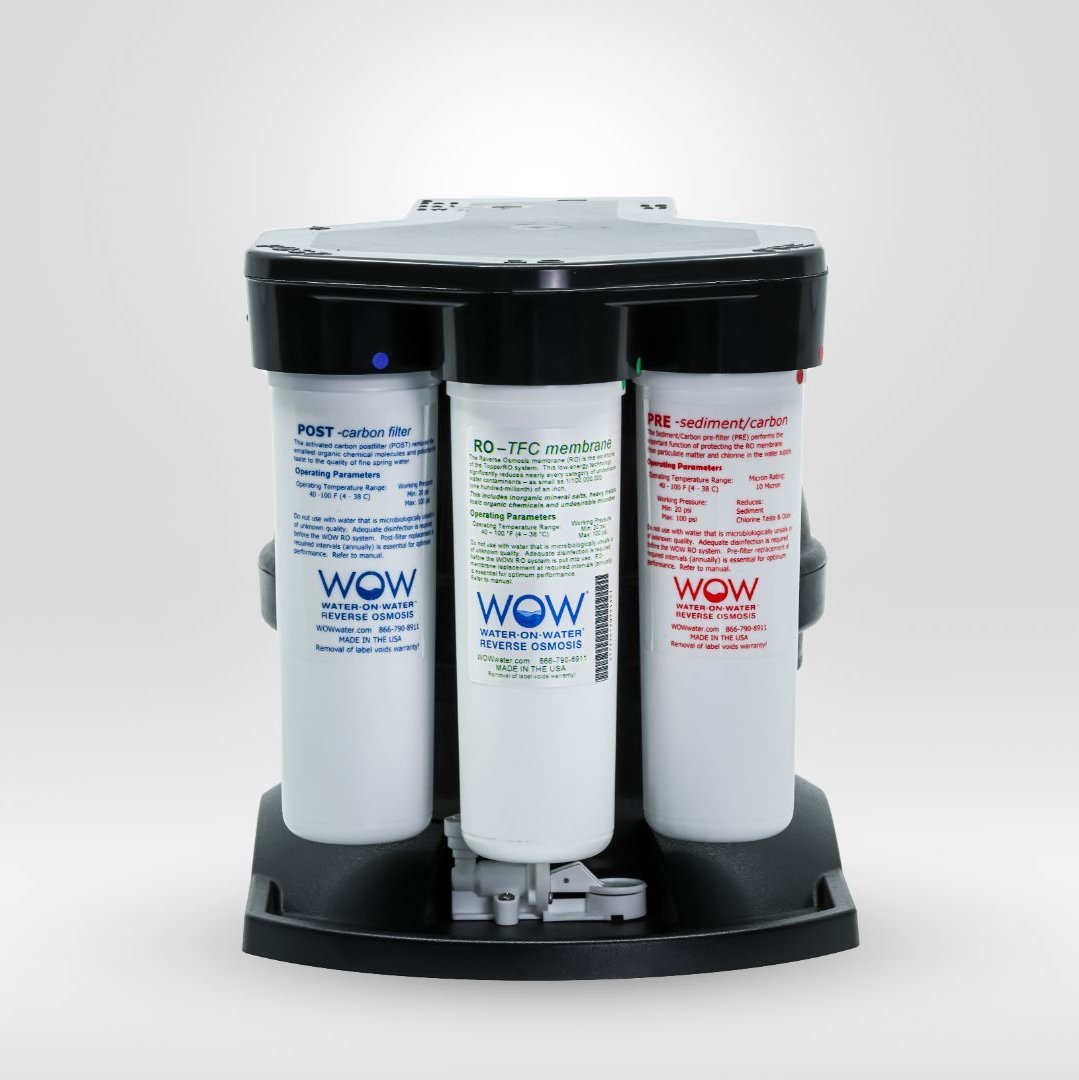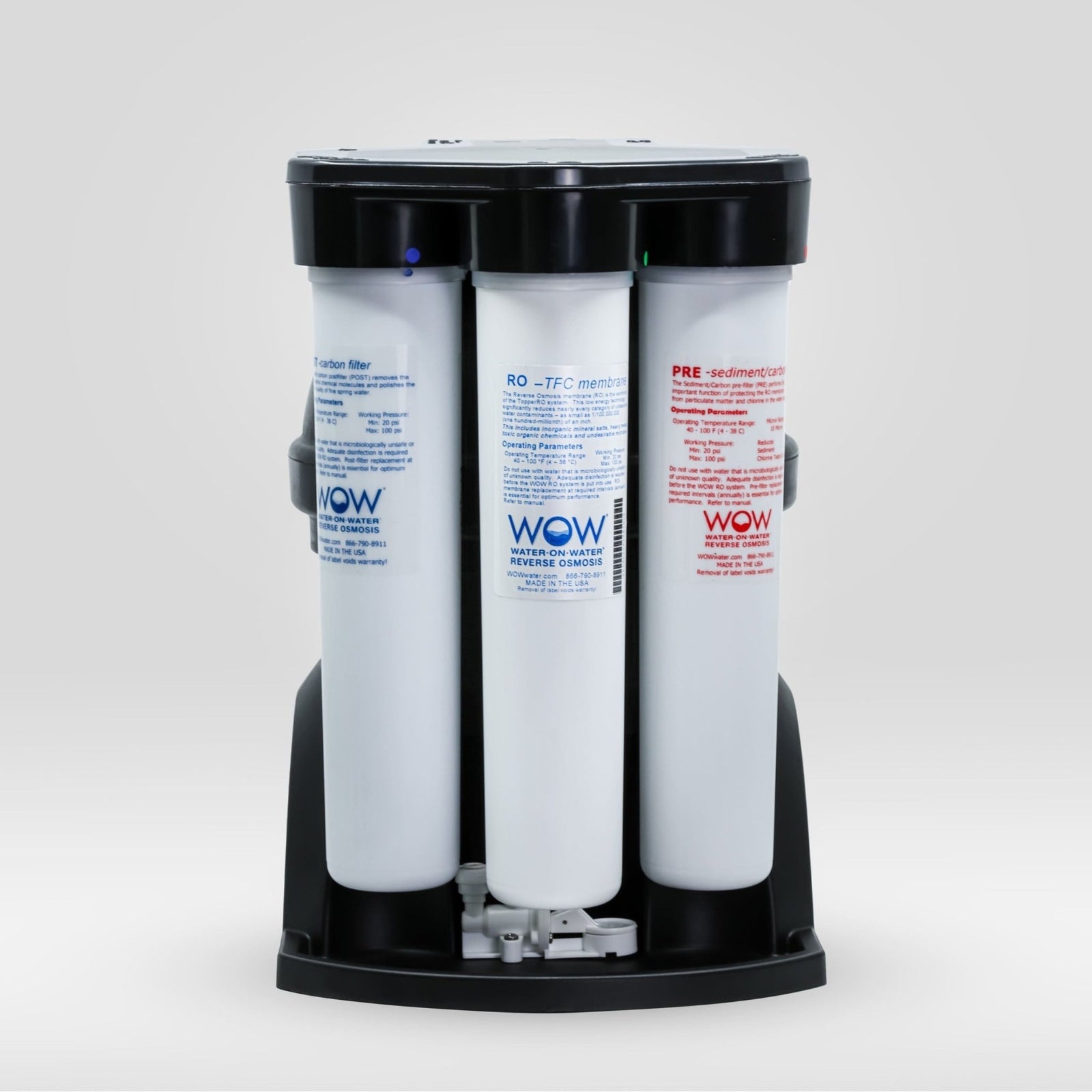Overview
PFAS are harmful chemicals that impact the environment and health. They enter the environment through industrial discharges and contaminate drinking water, leading to health risks such as cancer and liver problems. Protection against PFAS can be achieved through the use of certified water filters and increased awareness of the risks. Governments and businesses must also take action to regulate PFAS and use alternatives. It is essential to take responsibility for water quality and sustainability.
PFAS, or per- and polyfluoroalkyl substances, are a group of chemicals that have received increasing attention in recent years. These substances are commonly found in various consumer products, from cookware to water-repellent clothing. But the impact of PFAS goes beyond just our products; it has significant consequences for the environment and our health. In this article, we delve deeper into the impact of PFAS and how you can filter healthy water to protect yourself.
What are PFAS?
PFAS are synthetic chemicals originally developed in the 1940s. These substances are popular for their water- and grease-repellent properties. They are widely used in industry and consumer products. PFAS are also known as "forever chemicals" because they do not break down easily and persist in the environment for a long time.
How do PFAS enter the environment?
PFAS can enter the environment in various ways. The main sources are:
- Industrial discharges: Factories that produce or use PFAS can discharge these substances into the environment.
- Wastewater: The disposal of products containing PFAS, such as cleaning products, can lead to contamination of water sources.
- Rains: PFAS can be transported through the air and precipitate in water and soil.
The environmental impact of PFAS
The environmental impact of PFAS is devastating. These substances accumulate in ecosystems, leading to contamination of water, soil, and air. Animals and plants can also be affected by the presence of PFAS, potentially disrupting biodiversity.
Drinking water contamination
One of the biggest concerns about PFAS is the contamination of drinking water. These substances can enter our drinking water through discharge systems and rainfall. This poses a risk to public health because PFAS can accumulate in our bodies and cause harmful effects.
Effects on biodiversity
PFAS affect not only humans but also flora and fauna. Research has shown that animals living in contaminated areas can experience health problems, such as reproductive problems and immune disorders. This can significantly reduce biodiversity in these areas.
Health risks of PFAS
The negative health effects of PFAS are increasingly being researched. Studies have shown that exposure to PFAS can be linked to several health problems:
- Cancer: Research has shown a possible link between PFAS and several types of cancer.
- Liver problems: PFAS can disrupt liver function, which can lead to serious health problems.
- Hormone disruption: PFAS can affect endocrine functions, which can lead to reproductive and hormonal problems.
How to protect yourself from PFAS
With growing concerns about PFAS, it's important to take steps to protect yourself and your environment. One of the most important steps you can take is to filter healthy water. By using a suitable filter, you can significantly reduce the presence of PFAS in your drinking water.

Buy the best PFAS filter
When purchasing a PFAS filter, there are several factors to consider. Here are some tips to help you make the best choice:
- Certified filters: Choose filters that are certified to effectively remove PFAS.
- Filter Type: Consider using a reverse osmosis filter or an activated carbon filter, as these techniques are effective in removing PFAS.
- Maintenance: Make sure your filter is maintained regularly for optimal performance.
The role of government and regulations
Addressing PFAS pollution requires action not only from individuals but also from governments and businesses. Regulations and legislation play a crucial role in reducing PFAS and protecting the environment. Several countries have already taken steps to regulate PFAS, but more work remains to be done.
Changes in regulations
In the Netherlands, there are initiatives to reduce the use of PFAS and implement stricter water quality guidelines. It is important that these initiatives continue to prevent further pollution.
Contribute to awareness
Furthermore, organizations and advocacy groups can help raise awareness about PFAS and their environmental impact. By conducting educational campaigns and sharing information, consumers can be better informed about the risks and possible solutions.
What can companies do?
Businesses can also play a significant role in reducing PFAS in the environment. Here are some strategies businesses can implement:
- Alternative materials: Use PFAS-free materials in products.
- Ensure safe waste handling: Develop processes to minimize PFAS contamination during production and waste management.
- Transparency: Be open about the chemicals used and their impact on the environment.
Taking responsibility
By implementing responsible choices and practices, companies can contribute to a cleaner environment and improve the health of the population.
Take control of your water quality
While PFAS pose a serious threat to our environment and health, there are steps you can take to protect yourself and your family. By investing in a healthy water filter and consciously choosing PFAS-free products, you can make a difference. It's time to take action and care for our planet's health.
If you're looking for ways to protect your health and that of the environment, start by raising awareness about PFAS and its effects. Let's work together to create a healthier and more sustainable life in harmony with nature. Now is the time to take action for a safer future!
Linked product

The Source 50 Home Water Filter
The Source 50 home water filter offers an effective solution for filtering unwanted substances, including PFAS, from drinking water. This device helps consumers gain access to cleaner water, which contributes to a healthier lifestyle and reduces environmental pollution. By using this water filter, households can reduce their carbon footprint and contribute to a better environment.
View product







